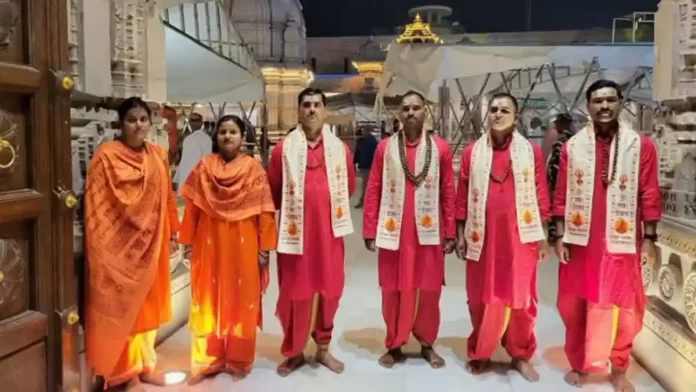Lucknow, April 12: The recent decision by the Bharatiya Janata Party (BJP) government in Uttar Pradesh to impose a traditional dress code on police officers stationed at Kashi Vishwanath temple in Varanasi has sparked intense debate and reignited discussions about the principles of secularism in India.
Under the directive issued by Varanasi Police Commissioner Mohit Aggarwal, police personnel on duty at the temple are required to wear attire resembling that of Hindu priests, including dhoti-kurtas and Rudraksha beads. This move, aimed at enhancing a positive connection between law enforcement and devotees, has drawn criticism from various quarters, particularly political figures and social media users.
Akhilesh Yadav, former Chief Minister of Uttar Pradesh and leader of the Samajwadi Party has strongly opposed this decision, questioning its legality and necessity. “Which police manual mandates a dress code resembling priests?” he challenged, urging immediate action against those responsible.
Commissioner Mohit Aggarwal defended the directive, highlighting the unique nature of policing within temple precincts. “Duties at temples differ from other locations,” he explained. “The demeanor of police officers during darshan can sometimes cause discomfort to devotees. By resembling priests, officers can foster a more positive atmosphere.”
However, critics argue that such a measure blurs the lines between state and religious practices, potentially undermining the secular fabric of the nation. They express concerns about accountability and neutrality in policing.
This controversy raises broader questions about the BJP-led government’s approach to religious symbolism and public service. While proponents view the dress code as a gesture of cultural sensitivity and community engagement, opponents fear it signals a departure from the principles of a secular state.
In the larger context, juxtaposing the ban on compulsory religious attire like the hijab at educational institutions with the imposition of a religious dress code for police officers underscores a complex narrative. It prompts reflection on India’s secular identity and the need for clear delineation between state authority and religious expression.
As discussions evolve, the Yogi Adityanath administration faces mounting pressure to reconsider the dress code mandate, with calls for transparency in navigating the intersection of state governance and religious practices. The controversy at Kashi Vishwanath temple reflects deeper tensions around governance, identity, and the evolving dynamics between tradition and modernity in India’s political landscape.




